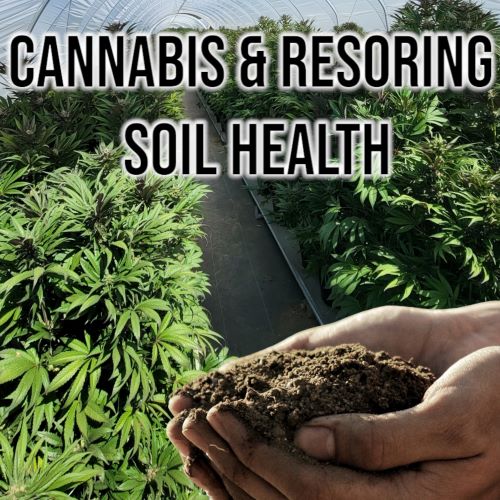The Role of Cannabis in Restoring Soil Health

The Role of Cannabis in Restoring Soil Health
The conversation about cannabis, often centered around its medicinal and recreational uses, has overshadowed another significant aspect of this versatile plant: its role in restoring soil health. As the world grapples with environmental issues like soil degradation, exploring sustainable agricultural practices has become crucial. This blog delves into how cannabis can be a game-changer in restoring soil health.
Understanding Soil Degradation
Soil degradation is a global issue impacting agricultural productivity and environmental health. This degradation often results from over-farming, chemical-heavy agricultural practices, and deforestation. The consequences are severe: loss of fertile land, decreased agricultural yields, and disrupted ecosystems. Against this backdrop, the potential of cannabis as a tool for soil restoration becomes highly relevant.
Cannabis: A Phytoremediator
One of the key attributes of cannabis is its ability as a phytoremediator. Phytoremediation is the process of using plants to absorb, transfer, stabilize, and destroy contaminants in the soil. Cannabis has shown remarkable efficiency in extracting heavy metals and other pollutants from the soil. This ability not only helps in cleaning contaminated land but also prepares it for future agricultural use.
Enhancing Soil Structure and Nutrient Content
Cannabis plants have deep root systems that can break up compacted soil, thereby enhancing soil structure. This aeration of the soil allows for better water infiltration and root penetration for future crops. Additionally, cannabis can be used as a cover crop, returning essential nutrients to the soil. As it decomposes, it adds organic matter, which improves soil fertility and encourages beneficial microbial activity.
Biodiversity and Pest Control
Introducing cannabis into crop rotations can increase biodiversity in agricultural systems. This biodiversity is vital for healthy soil ecosystems, as it helps maintain balance and resilience against pests and diseases. Moreover, certain compounds in cannabis, like terpenes, have natural pest-repelling properties, reducing the need for chemical pesticides.
Challenges and Future Directions
Despite its potential, the use of cannabis in soil restoration faces legal and social challenges, given its controversial status in many parts of the world. However, as legislation evolves and the understanding of cannabis’s environmental benefits grows, we could see more widespread adoption of this practice.
Conclusion
Cannabis, often in the spotlight for its psychoactive properties, holds untapped potential in restoring soil health. Its ability to clean contaminated land, improve soil structure, and enhance biodiversity positions it as a valuable tool in sustainable agriculture. As we continue to seek solutions for environmental restoration, the role of cannabis deserves greater attention and exploration.
